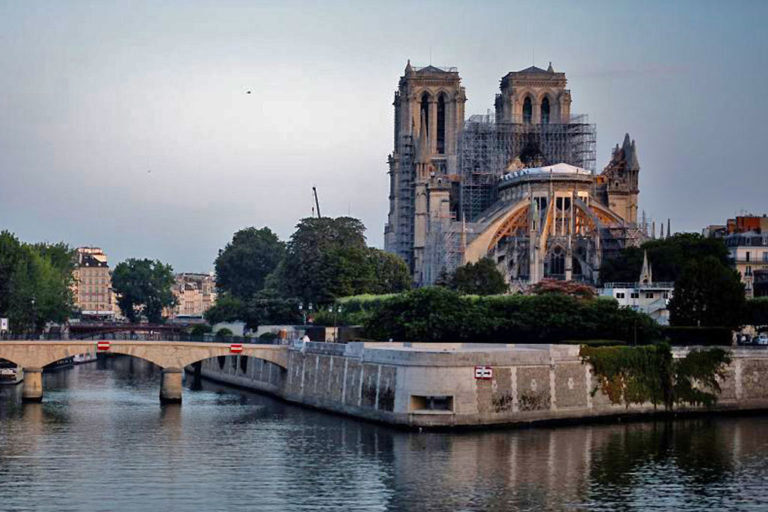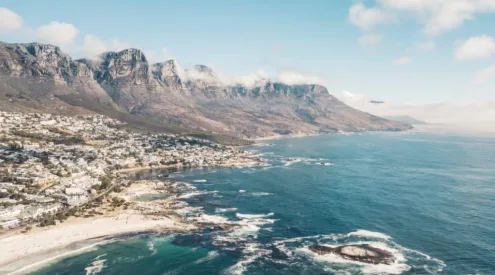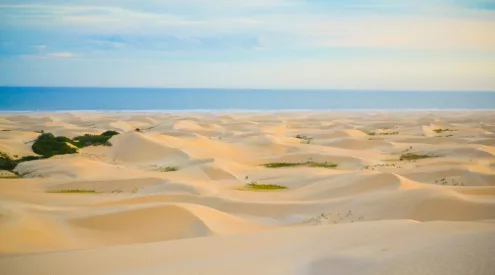A timber company in Ghana has put forth a proposal to supply wood from an underwater timber forest to rebuild the burnt Notre Dame cathedral roof in Paris, France, according to the BBC.

Image credit: Lionel Bonaventure/ AFP/Getty Images
After a fire burnt through the roof of the iconic French cathedral, the task team responsible for reconstructing the roof won’t have the luxury and abundance of building materials that were available when construction of Notre Dame began in the 12th Century. The Kete Krachi Timber Recovery company in Ghana believes its tropical hardwood, harvested and extracted from the artificial Lake Volta, is hardy and therefore suitable for the restoration of the 850-year-old French cathedral.
The fire, which is believed to have sparked on the evening of 15 April 2019, burnt the 91-metre wooden spire that was erected about 150 years prior, and burnt through the vaulted, oak ceiling.
Also see: Notre Dame Cathedral: After the flames
Between the 12th- and 14th centuries when Notre Dame was built, 21 hectares’ worth of trees are said to have been cut down to supply the timber for the cathedral’s frames.
The Ghanaian timber company, headquartered in the capital Accra, has a concession in Lake Volta, the world’s largest artificial lake that was formed when the Akosombo hydroelectric dam was constructed in the 1960s. Kete Krachi Timber Recovery will potentially sell its wood for $50 million (roughly R764 million) according to the BBC.
The wood from the trees displaced during the construction of the dam has remained healthy and hasn’t decayed thanks to a coating of dead plant matter which fossilises, protecting and fortifying the tropical hardwood – iroko timber (African teak).
While making use of this timber is thought to be a more sustainable solution to cutting down living trees to acquire the vast quantities of timber necessary for rebuilding the cathedral roof, extracting trees from the lake bed can have negative effects on the lake ecosystem which is a habitat for other organisms.















